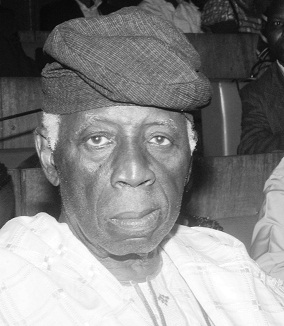“Having observed the abnormalities he met on the ground when he came into power in 2019 and recognising the import of healthcare, Governor Makinde made healthcare one of the pillars of his administration since 2019.”
A thriving society is easily noticeable by its strong healthcare system, which ensures that citizens remain healthy, productive and eventually, being able to contribute to national development.
In Nigeria, the healthcare system is more often inadequate, especially with the upsurge in brain drain in the health sector. Therefore, where healthcare infrastructure is inadequate, it becomes not just a norm but a necessity to invest in a functional and accessible system. There are millions of Nigerians, particularly in rural areas, struggling to access basic medical services because of poorly equipped facilities, inadequate staffing, and insufficient funding.
If there is a well-structured healthcare system, there will be reduced mortality rates, improved life expectancy, and strengthened economic growth that will keep the workforce healthy. As a former United Nations Secretary-General Kofi Annan once stated, “health is the foundation of development. No country can be economically and socially stable when large numbers of its people are sick and dying.”
For states in Nigeria to achieve sustainable progress, it is important to prioritise healthcare, especially at the primary level. This is one major reason Governor Makinde deserves commendation for making this aspect a core of his policy decisions in Oyo State.
A sound primary healthcare system is the backbone of any functional health sector, as this is like a first aid box for the people. It is usually the first point of contact for millions in rural communities and it determines how far a state can go in preventing diseases, providing maternal care, and managing public health emergencies.
Having observed the abnormalities he met on the ground when he came into power in 2019 and recognising the import of healthcare, Governor Makinde made healthcare one of the pillars of his administration since 2019. From the first day, he committed himself to revamping the more than 80 per cent of the primary healthcare centres across Oyo State, transitioning the primary healthcare sector from a neglected sector into one that truly serves the people.
When Governor Makinde assumed office, the state’s health sector was stagnated, with many Primary Health Centres (PHCs) either dilapidated or lacking basic infrastructure and amenities, functional equipment, and adequate personnel. Though these centres were meant to be the most accessible healthcare facilities to the people, they were unfortunately abandoned and neglected, leaving millions without proper medical care.
However, Governor Makinde was determined to change the narrative and set a clear vision by rehabilitating and equipping at least one primary healthcare centre in each ward. With 351 wards in Oyo State, it became an ambitious plan – one that needed careful planning, funding, and execution. In an admirable way and in line with the Omituntun style, the governor took a systematic approach that ensured each step was purposeful and impactful. It has indeed been from decay to renewal.
As of the time of writing this article, the Makinde-led government has successfully rehabilitated over 270 Primary Healthcare Centres across Oyo State, with many more in various stages of completion. These centres have been renovated and equipped with modern medical facilities to ensure that Oyo State residents have access to basic healthcare services, irrespective of their locations.
However, it is believed that infrastructure alone is not enough. As a thoughtful leader, who recognises the need for skilled healthcare professionals to operate in these centres, Governor Makinde approved the recruitment of staff into the PHC system. This simple move has become something huge, with the employment of thousands of Oyo State residents.It is also capable of bolstering the state’s healthcare workforce and improving the quality of services provided at the grassroots level.
The Oyo State Primary Health Care Board, under the leadership of its chairman, Hon. Abiodun Awoleye and Executive Secretary, Dr. Muideen Olatunji, has overseen a recruitment process that has not only come with excellence and high standards but has also been in sync with the Makinde style of transparent and merit-based recruitment. The recruitment has been hailed as a laudable one from Mr Governor and his team.
Governor Makinde’s approach to healthcare reform has, so far, been methodical, as he has reorganised the sector one step at a time, but with each step being deliberate and impactful. The governor is ensuring that healthcare delivery in Oyo State is accessible and sustainable to all with the way he is prioritising primary healthcare. His administration’s commitment to rehabilitating and staffing PHCs clearly shows his understanding that quality healthcare begins at the grassroots.
For a state that once struggled with a failing health sector, the progress made under Makinde’s administration has been truly remarkable. The people of Oyo State, especially those in underserved communities, now have renewed confidence in their healthcare system. It is a visionary approach to healthcare. Makinde’s transformation of Oyo State’s primary healthcare sector is a lesson in visionary leadership. His policies prove that with the right priorities, commitment, and execution, even the most embattled systems can be revitalised.
As this man continues to push forward with his reforms, it is with confidence that many people believe that Oyo State’s health sector is rightly on its way to becoming a model for the rest of the country. At a time when many states in Nigeria are struggling with inadequate healthcare systems, Makinde has shown that real progress is possible, not with empty promises but with measured, purposeful, and decisive actions.
In conclusion, Makinde’s transformation of Oyo State’s primary healthcare system is an empirical evidence of what visionary leadership can achieve when policies are motivated by purpose and for the needs of the people. The administration has improved access to healthcare and equally restored public confidence in the system with how he handled the rehabilitation of PHCs, equipping them with modern facilities and ensuring they have qualified professionals, unlike the popular belief that PHCs are filled with mediocre staff.
As the reforms continue, Oyo State is becoming an example of what is possible when healthcare is prioritised. The governor’s commitment to strengthening PHCs further highlights his motive: to ensure that no citizen, regardless of their location, financial status or social status, is left without access to quality medical care.
•Onadiran sent this piece from Ibadan.






























